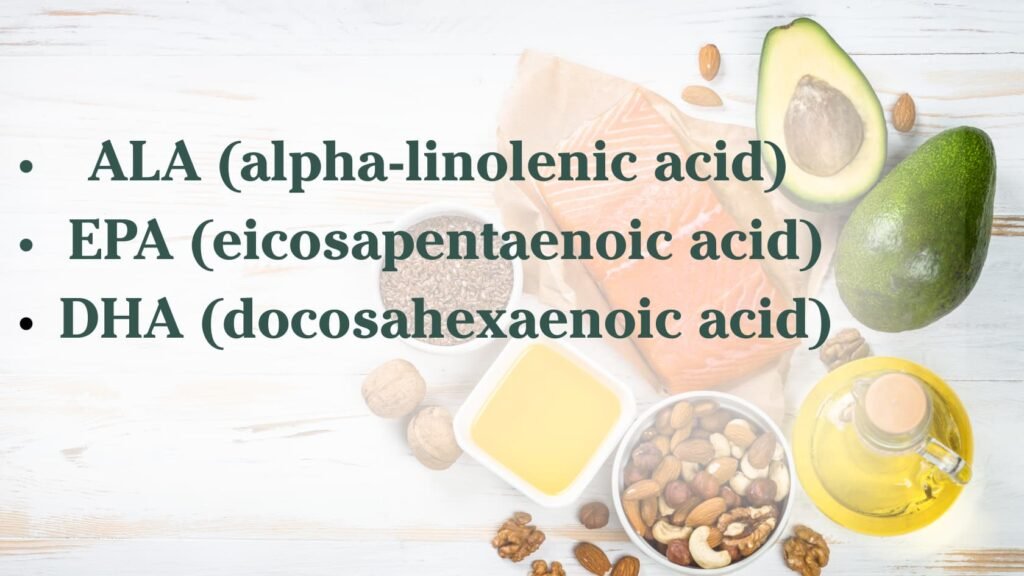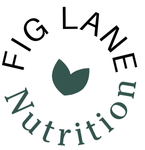You may have heard that “if your not eating fish twice a week then, you should take a fish oil”. But what if your following a plant based diet or looking for an alternative to those fishy burps, you may wonder, how plant-based omega-3 stack up against fish oil?

As a registered dietitian, omega-3s are something that I get asked about a lot. In this article, I’ll talk about what omega-3 are, break down the differences between plant-based omega-3 vs fish oil, and help give you what to consider when you are choosing what is right for you.
Note: This comparison is based fish oils and plant-based alternatives meant to be nutritionally comparison. Other plant-based omega-3 supplements may contain different fatty acid make ups and would not be comparable to what is found in fish oil.
What Are Omega-3 Fatty Acids?
Omega-3s are a type of unsaturated fatty acid that can be founds naturally founds in some of our foods and supplements. Omega-3s play a roll in our eye and brain health, immune system, endocrine system, make up our cell membranes in our body, and so much more.
There are different kinds of omega-3s, some of which are essential, meaning they can not be made by our body and we need obtain them from our diet.
Alpha-linolenic acid, or ALA for short, is the essential omega-3 where as DHA and EPA non-essential are the kinds found in fish or fish oils. Now, just because these are called non-essential, this does not mean we do not need them. These two omega-3s are called non-essential because, our body can make them from ALA but, only in small amounts [1].

- ALA (alpha-linolenic acid) – Essential, found in plant foods like flaxseeds, chia seeds, walnuts, canola oil, soybean oil, etc.
- EPA (eicosapentaenoic acid) – Non-essential, mainly found in fish, shell fish and algae.
- DHA (docosahexaenoic acid) – Non-essential, also mostly from fish, shell fish and algae.
Fish Oil Supplements
Fish oil is the most common sources of EPA and DHA, the two long-chain omega-3s most associated with heart and brain benefits.
Pros of Fish Oil:
- Naturally rich both EPA and DHA
- Often available in high concentrations
- Can be an affordable source of Omega-3s
Cons of Fish Oil:
- Not suitable for plant-based vegetarians or vegans
- Can have fishy burping
- May contain contaminants like mercury, heavy metals, or PCB’s (depending on the source)
Plant-Based EPA and DHA Supplements
Plant-based omega-3 providing EPA and DHA are derived from microalgae oil or there concentrates. Algae is actually where fish get their omega-3s content from in the first place.
Other omega-3 supplements containing ALA, can convert into EPA and DHA. But as mentioned earlier because of the variations in the type of fatty acid, these can not be accurately compared because, conversion is limited and varies by individual [2,3].
Pros of Plant-Based Omega-3:
- Plant-based vegan and vegetarian friendly
- Algae oil provides direct DHA and EPA (depending on the brand)
- More sustainable and environmentally friendly [4,5]
- No fishy taste
Cons of Plant-Based Omega-3:
- More expensive than fish oil (about double the price depending on brand)
- Fewer options with EPA (some algae oils concentrates include both EPA and DHA)
Nutritional Comparison: Plant-Based Omega-3 vs Fish Oil
| Factor | Fish Oil | Plant-Based (Algae Oil) |
|---|---|---|
| EPA and DHA Content | High and High | Low-High and Moderate-High |
| Suitable for Vegans | No | Yes |
| Risk of Contaminants | Possible* | Minimal* |
| Environmental Impact | Higher [4,5] | Lower [4,5] |
| Taste/Smell | Fishy | Neutral |
| Source(s) | Fish (anchovies, sardines, mackerel, pollock, herring, tuna) | Microalgae |
*Look for third party testing.
Should You Supplement on a Plant-Based Vegan Diet?
There is no defined adequate intake (AI) or Recommended Dietary Allowance (RDA) for EPA or DHA since they are non-essential. However, if you follow a plant-based vegan or vegetarian diet without fish (not pescatarian), it becomes more difficult to obtain EPA and DHA. You are reliant on the small bodies conversion of ALA without supplement with algae-based omega-3 that contains DHA and EPA. So if you do not consume high amounts of ALA, than looking into a supplement may be a good option.
RD Review: Plant-Based Omega-3 vs Fish Oil
If you are a plant-based vegan or vegetarian plant-based omega-3 supplements containing both EPA and DHA are a suitable and sustainable alternative. However, if you are plant-base and mainly focus on obtaining plant-based foods but still consume some animal and fish products the choice is up to you. If you have a few extra bucks it is an easy alternative when looking for more environmentally friendly options.
Which ever one you choose, as a registered dietitian, I always looking for a third-party tested supplement to help ensure a safer product. Additionally remember, although EPA and DHA are important, it is also important to obtain adequate ALA, in any diet because, it is an essential fatty acid.
Takeaway
Fish oil is rich in both EPA and DHA omega-3s but there are several reasons one might avoid them. Plant-based vegan and vegetarian diets are low in EPA and DHA unless obtaining supplemental sources.
Want to learn more about other plant-based fats including which ones contain more omega-3s? Check out: 11 Plant-Based Fat Sources

Pingback: Hemp Seeds vs Chia Seeds: A Dietitian's Review on Which is Better - Fig Lane Nutrition